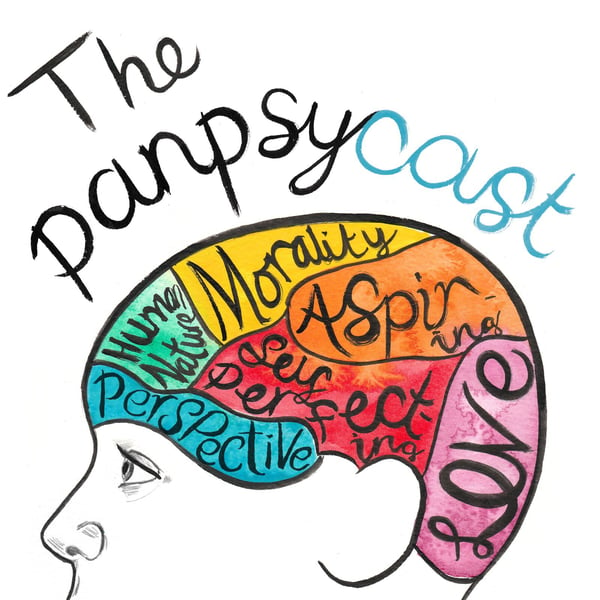Episode 38, ‘Philosophy in Everyday Life’ with Philosophy Now's Rick Lewis (Part II)
The Panpsycast Philosophy Podcast
Jack Symes | Andrew Horton, Oliver Marley, and Rose de Castellane
4.8 • 604 Ratings
🗓️ 3 June 2018
⏱️ 24 minutes
🧾️ Download transcript
Summary
Rick Lewis took his first degree in physics and philosophy of science at the University of Manchester, and later an MA in philosophy at the University of York.
Making philosophy accessible and encouraging the person on the street to engage in philosophy in their everyday life was, and is, hugely important to Rick. That’s why in 1991 Rick founded the magazine Philosophy Now, of which, he has been the editor ever since. Soon after launching the magazine, Philosophy Now became the first philosophy title to appear on UK news-stands.
This episode Jack, Andy, Olly and Rick will be discussing ‘the role of philosophy in everyday life’. For many, philosophy is something which can not only enrich our own lives but the lives of our fellow humans. For many others, philosophy is a waste of a life, something that diminishes, something which fails to enrich...
- Part I. Philosophy in Everyday Life.
- Part II. Philosophy Now, Further Analysis and Discussion.
Transcript
Click on a timestamp to play from that location
| 0:00.0 | Part two, Philosophy Now, Further Analysis and Discussion. |
| 0:16.9 | Do you want to start with your question? |
| 0:18.6 | Sure. |
| 0:19.4 | So, Rick, we're just going to ask you a couple of questions that are kind of taking some of the philosophical content we've talked about and relating it to, like, modern issues that are in the media at the moment and trying to apply some of the philosophical kind of theories and feel free to drop any ones you want. |
| 0:35.0 | Okay, so the first question was about something that happened in the media recently that I think is quite an interesting example and can be phrased into a sort of thought experiment. So for those not aware, last week, the UK government, the French government and the American government bombed Syria. This was due to a chemical attack that the Syrian government apparently inflicted |
| 0:55.6 | on its own people. And I think this raises a really interesting philosophical and ethical question |
| 0:59.8 | because this attack by the French, British and American governments was done quite quickly. |
| 1:04.9 | And in the UK, it was done without a vote in Parliament. And the reason I'm posing this is |
| 1:08.9 | because we actually did it in our school debate club on Thursday, which is that, Rick, do you think that military action, which can have, you know, |
| 1:16.2 | quite impactful results on people, you know, resulting in loss of life, etc. Do you think that |
| 1:22.7 | those sorts of actions should be put forward without a vote in Parliament? In general, definitely not. |
| 1:28.3 | However, I can imagine there are circumstances when military action is pointless and less taken immediately. |
| 1:34.3 | So therefore, Parliament might want to grant, or the law might want to grant a general permission for a government to act immediately without reference back to Parliament under |
| 1:49.0 | those circumstances, although the circumstances themselves would have to be quite clearly |
| 1:54.4 | described when giving that kind of permission. And obviously there would also have to be debate afterwards by Parliament |
| 2:05.4 | of whether the government had used that power, delegated by Parliament, |
| 2:12.0 | responsibly, correctly. |
| 2:13.9 | So I'm going to play a bit of devil's advocate because it's fun. |
| 2:17.1 | So how would you respond then if someone said that, okay, so having a vote before is essential in a case in an emergency? |
| 2:24.8 | How someone may say, okay, but the democratic process is very slow, very arduous in terms of this vote. You know, it could take potentially days and then you might get the vote that, you know, you should do it anyway, in which case you've just lost it a couple of days, you've lost some time there. Do you feel like there's strong arguments kind of for and against this? I mean, is there maybe a danger if the government has a veto over what Parliament says, if they can just perform military action straight away, you know, |
| 2:52.0 | taking the Syrian conflict out of it for a second? Or philosophically, do you think that maybe |
| 2:56.4 | government should have this power in an emergency? Well, let's see. What's the best we could |
... |
Please login to see the full transcript.
Disclaimer: The podcast and artwork embedded on this page are from Jack Symes | Andrew Horton, Oliver Marley, and Rose de Castellane, and are the property of its owner and not affiliated with or endorsed by Tapesearch.
Generated transcripts are the property of Jack Symes | Andrew Horton, Oliver Marley, and Rose de Castellane and are distributed freely under the Fair Use doctrine. Transcripts generated by Tapesearch are not guaranteed to be accurate.
Copyright © Tapesearch 2025.

